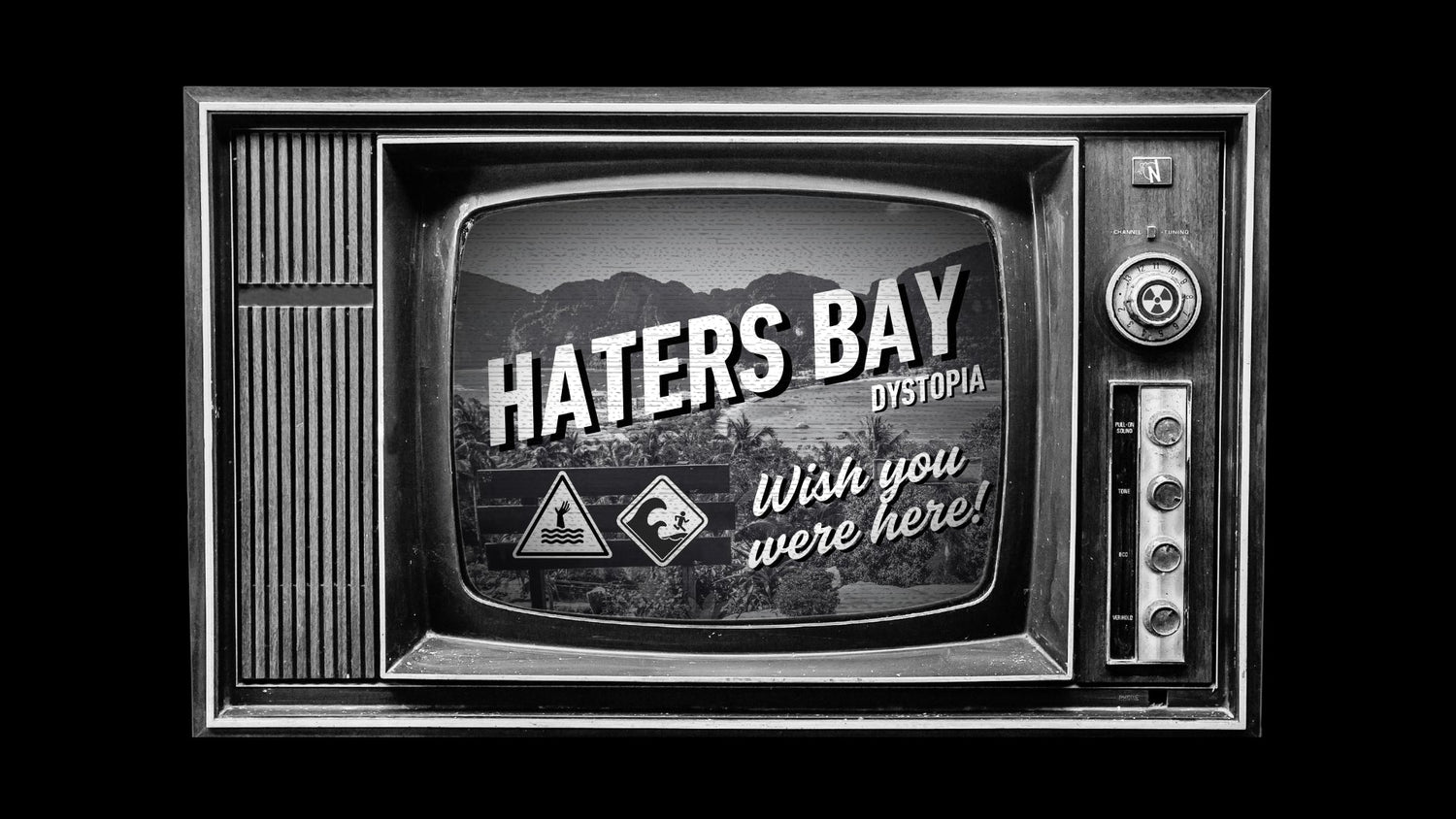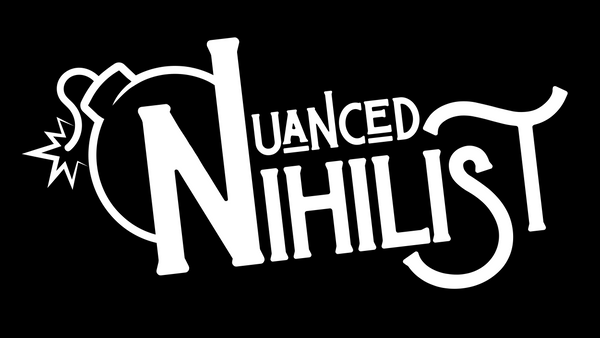The Void Vocabulary

In a world where truth has become subjective, it is important to define one’s terms. Being a creative cynic and self proclaimed intellectual, pretentious words are a staple in the Nuanced Nihilist vernacular. In The Void you will find these words peppered all throughout the blog posts and ‘The Nuanced Nihilist ABCs’ (Ebook and paperback available on Kindle and Amazon) pays homage to this vocabulary in the form of a satirical kids book for adults.
To “define our terms” and further assist your understanding and navigation of Nihilism, Existence, and The Void; here is a list of some favorite Nuanced Nihilist key words and their definitions:
Absurd [/əbˈsərd/]: (adj.) Wildly unreasonable, illogical, or inappropriate.
Abyss [/əˈbis/]: (n.) A deep or seemingly bottomless chasm.
Apathy [/ˈapəTHē/]: (n.) Lack of interest, enthusiasm, or concern.
Begrudgingly [/bəˈɡrəjiNGlē/]: (adv.) Reluctantly or resentfully.
Bleak [/blēk/]: (adj.) Lacking signs of life and exposed to the elements.
Blight [/blīt/]: (n.) Something that spoils or damages something else; a disease or affliction.
Bombastic [/bämˈbastik/]: (adj.) High-sounding but with little meaning; inflated.
Caustic [/ˈkôstik/]: (adj.) Able to burn or corrode organic tissue by chemical action; Sarcastic in a scathing and bitter way.
Chaos [/ˈkāˌäs/]: (n.) Complete disorder and confusion.
Cynical [/ˈsinək(ə)l/]: (adj.) Distrustful of human sincerity or integrity.
Disillusioned [/ˌdisəˈlo͞oZHənd/]: (adj.) The condition of being dissatisfied in expectation or hope.
Disdain [/disˈdān/]: (n.) The feeling that someone or something is unworthy of one's consideration or respect; contempt.
Dystopian [/disˈtōpēən/]: (adj.) Relating to or denoting a state of being or society where there is great suffering or injustice.
Drab [/drab/]: (adj.) Lacking brightness or interest; drearily dull.
Existentialism [/ˌeɡzəˈsten(t)SHəˌliz(ə)m/]: (n.) A philosophical theory or approach which emphasizes the existence of the individual person as a free and responsible agent determining their own development through acts of the will.
Futility [/fyo͞oˈtilədē/]: (n.) Pointlessness or uselessness.
Grift [/ɡrift/]: (v.) Engage in petty or small-scale swindling.
Hyperbolic [/ˌhīpərˈbälik/]: (adj.) Of, relating to, or marked by language that exaggerates or overstates the truth.
Hypernormalization [/ˈhīpərˌnôrmələˈzāSH(ə)n/]: (n.) A scenario in which a population recognizes that they are in a hopeless situation, however, cannot perceive a way out and thus proceed as usual.
Hypocrisy [/həˈpäkrəsē/]: (n.) The practice of claiming to have moral standards or beliefs to which one's own behavior does not conform; false pretense.
Irony [/ˈīrənē/]: (n.) The expression of one's meaning using language that normally signifies the opposite, typically for humorous or emphatic effect.
Irreverent [/ˌi(r)ˈrev(ə)rənt/]: (adj.) Showing a lack of respect for people or things that are generally taken seriously.
Jaded [/ˈjādəd/]: (adj.) Tired, weary, or lacking enthusiasm, typically after having already had too much of something.
Jaundice [/ˈjôndəs/]: (n.) Bitterness, resentment, or envy.
Lackadaisical [ˌlakəˈdāzək(ə)l]: (adj.) Lacking enthusiasm and determination; carelessly lazy.
Lament [/ləˈment/]: (v.) To mourn; a passionate expression of grief or sorrow.
Languish [/ˈlaNGɡwiSH/]: (v.) To suffer from being forced to remain in an unpleasant place or situation.
Lethargic [/ləˈTHärjik/]: (adj.) Sluggish and apathetic.
Loathe [/lōT͟H/]: (v.) To feel intense dislike, hatred, or disgust for.
Malaise [/məˈlāz,məˈlez/]: (n.) A general feeling of discomfort, illness, or uneasiness of which the exact cause is difficult to identify.
Monotonous [/məˈnätənəs/]: (adj.) Dull, tedious, and repetitious; lacking in variety and interest.
Nihilism [/ˈnīəˌliz(ə)m/]: (n.) The rejection of all principles, in the belief that life is meaningless.
Nuanced [/ˈno͞oˌänst/]: (adj.) Characterized by subtle shades of meaning or expression.
Oblivion [/əˈblivēən/]: (n.) The state of being unaware or unconscious of what is happening; The state of being forgotten; Extinction.
Obsolete [/ˌäbsəˈlēt/]: (adj.) No longer produced, used, or relevant; out of date.
Paradox [/ˈperəˌdäks/]: (n.) A seemingly absurd or self-contradictory statement or proposition that when investigated or explained may prove to be well founded or true.
Pessimism [/ˈpesəˌmiz(ə)m/]: (n.) A tendency to see the worst aspect of things or believe that the worst will happen; a lack of hope or confidence in the future.
Quagmire [/ˈkwaɡˌmī(ə)r/]: (n.) An awkward, complex, or hazardous situation; a muck or mess.
Quandary [/ˈkwänd(ə)rē/]: (n.) A state of perplexity or uncertainty over what to do in a difficult situation.
Relentless [/rəˈlen(t)ləs/]: (adj.) Oppressively constant; incessant.
Resentment [/rəˈzentm(ə)nt/]: (n.) Bitter indignation at having been treated unfairly.
Sarcasm [/ˈsärˌkazəm/]: (n.) The use of irony to mock or convey contempt.
Sardonic [/särˈdänik/]: (adj.) Grimly mocking or cynical.
Subversive [/səbˈvərsiv/]: (adj.) Seeking or intended to subvert an established system or institution.
Tedious [/ˈtēdēəs/]: (adj.) Too long, slow, or dull; tiresome or monotonous.
Torpor [/ˈtôrpər/]: (n.) A state of physical or mental inactivity; lethargy.
Trenchant [/ˈtren(t)SH(ə)nt/]: (adj.) Vigorous or incisive in expression or style; having a sharp edge.
Ubiquitous [/yo͞oˈbikwədəs/]: (adj.) Present, appearing, or found everywhere.
Useless [/ˈyo͞osləs/]: (adj.) Not fulfilling or not expected to achieve the intended purpose or desired outcome.
Vitriol [/ˈvitrēəl/]: (n.) Cruel and bitter criticism.
Void [/void/]: (n.) A vast and empty space.
Weary [/ˈwirē/]: (adj.) Feeling or showing tiredness, especially as a result of excessive exertion or lack of care.
Wither [/ˈwiT͟Hər/]: (v.) Cease to flourish; fall into decay or decline.
Woe [/wō/]: (n.) Great sorrow or distress (often used hyperbolically).
Xeric [/ˈzerik/]: (adj.) Containing little moisture; very dry.
Yours - Screaming into the Void,
Nuanced Nihilist


